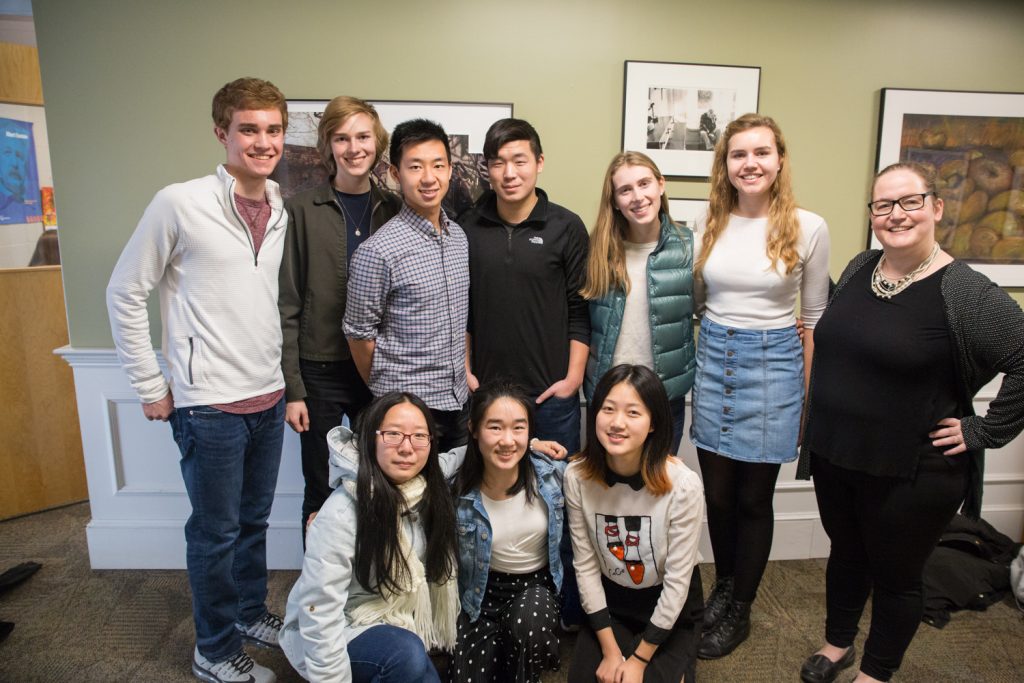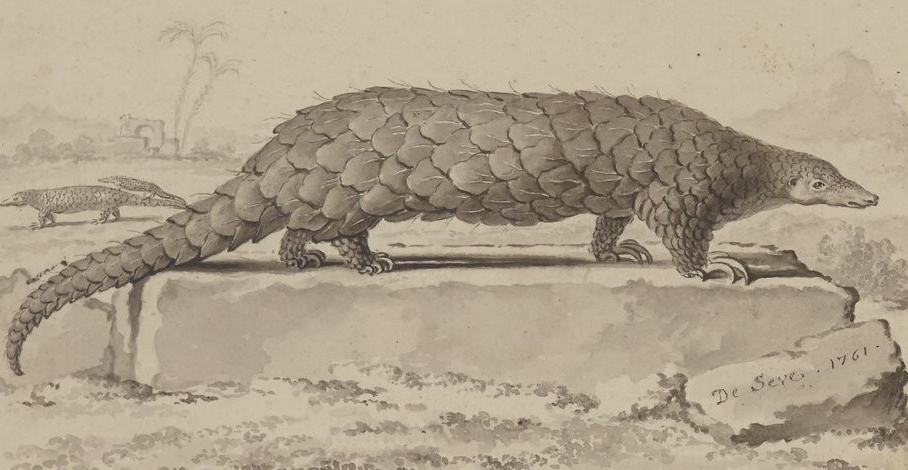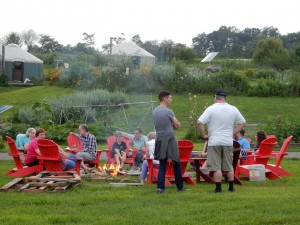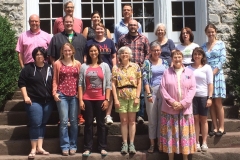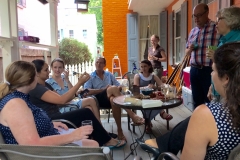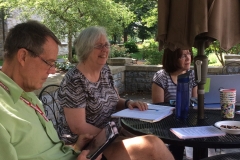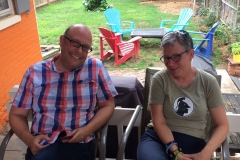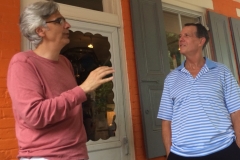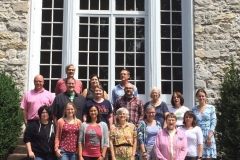One of the hidden treasures of neo-Latin prose is the Historiarum Indicarum libri XVI (1588)[1] by the Italian Jesuit Giovanni Pietro Maffei (1536–1604, Latin name Maffeius). It tells the story of the Portuguese voyages of conquest and discovery in the sixteenth century around the coast of Africa, to the Malabar Coast of India, on to Malacca, China, and Japan. While Maffeius himself did not travel to the East, he spent eight years collecting material and writing in the royal archives in Portugal, and his work is based on a variety of documents, including letters from Jesuit missionaries, some of which are now lost. The full-scale ethnography of China in Book 6 is of particular importance as a shaper of European images of China in this period. First published in Florence, it went through eight separate editions by 1600, was included in a two-volume edition of all of Maffei’s Latin writings in 1747, and was last printed in Vienna in 1752.[2] There has so far been no modern Latin edition or English translation.
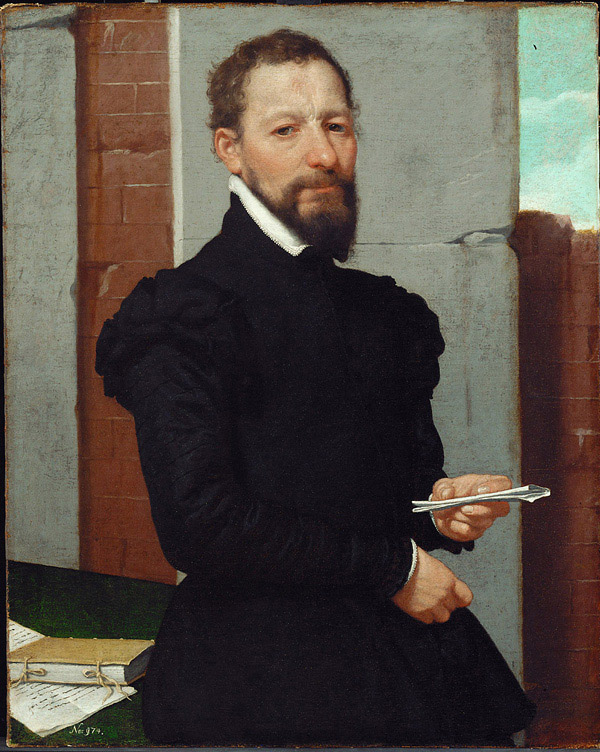
Portrait of Maffei by Giovanni Battista Moroni , ca. 1560-65. Vienna, Kunsthistorisches Museum. Image source: Wikimedia.
The text merits renewed attention on three main grounds. First is the quality of the Latin. Maffei was a superb linguist (with enough Japanese to publish translations of Japanese texts and to act as an interpreter), a celebrated writer in both Tuscan and Latin, and a famously meticulous Latin stylist. After his early education in his home city of Bergamo and an apprenticeship in Rome under the head of the Vatican Library, Maffei gained the chair of rhetoric in Genoa on the recommendation of Paulus Manutius. While in Genoa in 1565 he submitted his name to the Jesuits, and shortly thereafter returned to Rome and became professor of rhetoric at the Collegium Romanum. He gained fame all over Europe in 1570 on the publication of his Latin translations of Acosta’s history of the early Portuguese voyages to the Indies and associated Jesuit letters. On the strength of this work he was invited by the learned Prince (and Cardinal, later King) Henry of Portugal to tell the whole story in a style worthy of the subject matter. After Henry’s death in 1580 the work was finished under the auspices of Philip, king of the now united Spain and Portugal, to whom the book is dedicated.
Contemporaries compared him to Caesar and Tacitus, but he is no slavish imitator, nor is his Latin as mannered as that of the other great Latin historian of the era, Paolo Giovio. His hallmarks are clarity, elegance, and variety. In the words of fellow historian Famiano Strada, “nothing anywhere unkempt or careless; indeed, elegant perfection from beginning to end—unless his only fault is that he has no faults.”[3] At one of the debates held at the literary salon sponsored by Christina Queen of Sweden at the Palazzo Farnese in the 1650s the question was posed which two authors one should want preserved if all the others should perish, choosing one pro antiquitate, another pro Latino idiomate. The consensus was that, among ancient authors, they would keep Plutarch, among works prized for Latin style, those of Maffeius.[4]
The second reason to turn to Maffeius now is that the text deserves to be better known to historians of the early modern period and the age of exploration. For most of the 20th century, when the dominant geo-political force was the north Atlantic alliance, scholars naturally tended to focus on the early period of contact between Europe and the Americas. The resurgence of China and other Asian powers has created renewed interest in the early history of European colonialism in the Indian Ocean and Pacific areas as well. The importance of the 16th century Latin sources to Atlantic studies has long been recognized, and led to modern editions and studies of authors such as Peter Martyr.[5] But Latin in Asia is still “the great terra incognita of Renaissance literary history.”[6] Sanjay Subrahmanyam’s excellent new study on Europeans’ early contacts with India, for example, neglects the Latin sources in favor of the undeniably important vernacular ones, and does not mention Maffeius.[7] The only substantial discussions of Maffei by historians known to me are by Donald Lach and, more recently, Stefano Andretta.[8] A readable Latin text, combined with English and Portuguese translations, will make the work better known.
The third reason to make Maffeius better known is to foster the study of Latin in the areas that Maffeius discussed, particularly China. As witnessed by numerous recent conferences and publications, the study of ancient Greek and Latin is blooming in China and Japan.[9] Maffei’s Historiae Indicae would be of interest both to historians from those countries who study European colonialism from their own perspectives, and to students who want to learn to read Latin with a text of direct relevance to the history of their own countries. In particular I hope to edit Book 6, on China, in collaboration with a Chinese scholar, with notes to the Latin in Chinese, and comparison with what the Chinese sources to check the accuracy of and contextualize Maffeius’ and other European observers’ assertions about China in the later Ming period.[10] As the study of the Latin and Greek classics becomes globalized, neo-Latin about Asia and Maffeius in particular can play an important role in both scholarship and pedagogy. Study of such European neo-Latin texts should be coupled with the study of the Latin versions of the Chinese classics, and the wider use of Latin in Asia in sixteenth and seventeenth centuries.[11]
[1] Ioannis Petri Maffeii Bergomatis e Societate Iesu historiarum indicarum libri XVI. Selectarum item ex India epistolarum eodem interprete libri IV. Accessit Ignatii Loiolae vita postremo recognita, et in opera singula copiosus index. Florence: Filippo Giunta, 1588. https://archive.org/details/bub_gb_zOibVyJgfdoC
[2] Ioannis Petri Maffeii Bergomatis e Societate Iesu historiarum indicarum libri XVI. Vienna: Trattner, 1752. http://www.mdz-nbn-resolving.de/urn/resolver.pl?urn=urn:nbn:de:bvb:12-bsb11197028-0
[3] From Prolusiones Academicae (1619) II.iii, quoted by Félix Sánchez Vallejo, “Quartus imminet dies saecularis a morte insignis cultoris Latinitatis, Ioannis Petri Maffei,” Latinitas 51 (2003), 50–55, at p. 53.
[4] Pierantonio Serassi, Vita Maffei, in Jo. Petri Maffeji Bergomatis e Societate Jesu opera omnia Latine scripta, nunc primum in unum corpus collecta, variisque illustrationibus exornata, vol. 1 (Bergamo: Petrus Lancellottus, 1747), xxi. https://goo.gl/ubqaM6
[5] Andrew Laird, “North America,” in Sarah Night and Stefan Tilg, eds., The Oxford Handbook of Neo-Latin (Oxford: Oxford University Press, 2015), 525–540.
[6] Zweder von Martels, “Asia,” in Philip Ford et al., eds., Brill’s Encyclopaedia of the Neo-Latin World: Macropaedia (Leiden: Brill, 2014), 849.
[7] Europe’s India: Words, People, Empires 1500–1800 (Cambridge: Harvard University Press, 2017), 63.
[8] Donald F. Lach, Asia in the Making of Europe. Vol. 1: The Century of Discovery (Chicago: University of Chicago Press, 1965), 803–805. Stefano Andretta, “Modelli di santità nelle Historiae indicae di Giovanni Pietro Maffei,” Monaci, ebrei, santi: studi per Sofia Boesch Gajano: atti delle Giornate di studio “Sophia kai historia,” Roma, 17-19 febbraio 2005 (Rome: Viella, 2008), 451–470.
[9] Kathleen Coleman, “Nondum Arabes Seresque Rogant: Classics Looks East.” Society for Classical Studies Blog, October 16, 2016. https://classicalstudies.org/scs-blog/kcoleman/blog-nondum-arabes-seresque-rogant-classics-looks-east
[10] Lach, op. cit., p. 745.
[11] See Noël Golvers, “Asia,” in Sarah Night and Stefan Tilg, eds., The Oxford Handbook of Neo-Latin (Oxford: Oxford University Press, 2015), 557–574.
